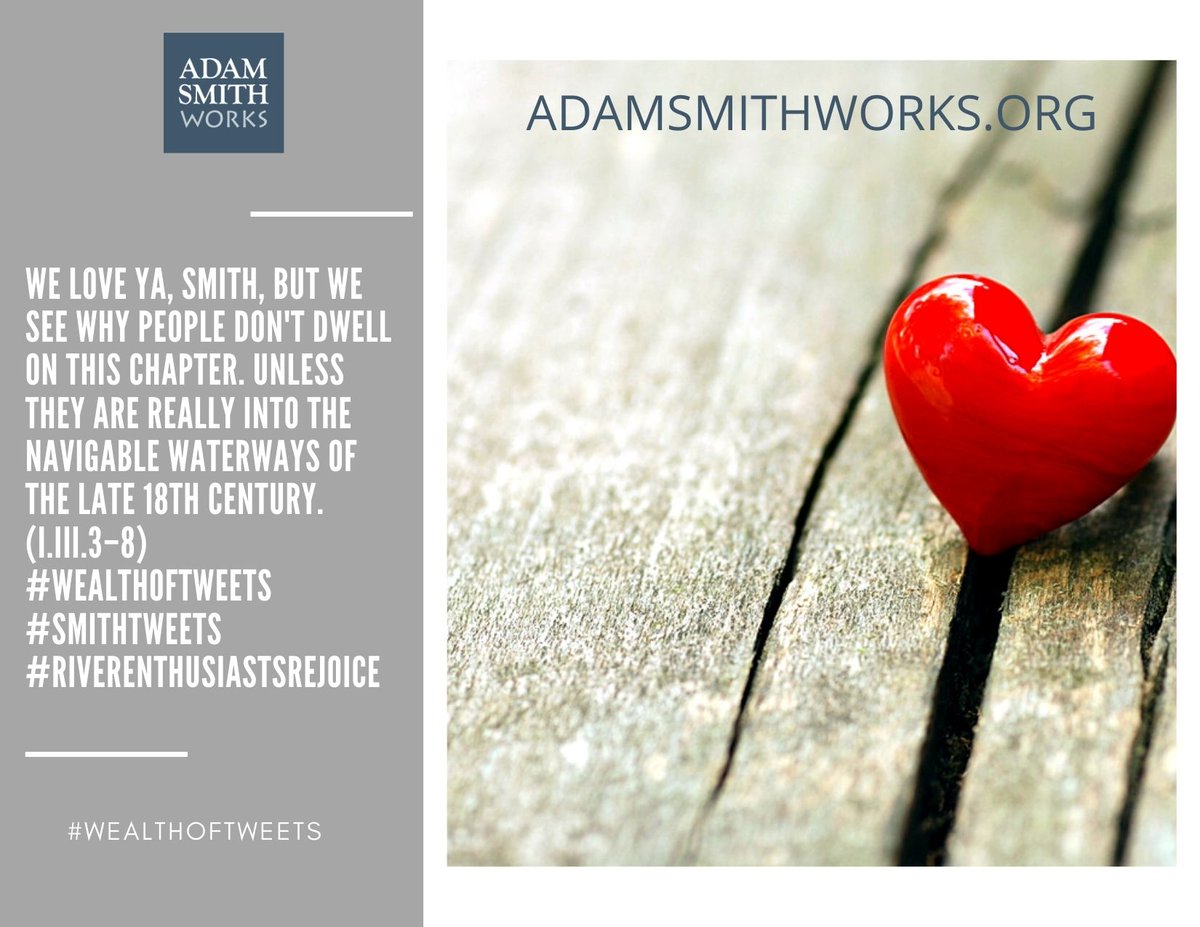
We know what you're thinking: Yay! All done with #AdamSmith's theory of prices! Labor and gold, that's where it's at. Right? Ha ha! WRONG! All prices have three components: wages, profit, and rent. Let's tweet about them! (I.vi.10) #WealthOfTweets #SmithTweets
(Don't panic. Smith still says the real VALUE of all the parts of a price comes down to how much labor they can purchase or command. But today we're only talking about price.) (I.vi.9) #WealthOfTweets #SmithTweets
So if all we're just hunting/gathering/trading, then all we have to worry about paying for labor (wages). That's where all exchangeable value comes from. But in advanced market societies, there's more going on. (I.vi.1-4) #WealthOfTweets #SmithTweets
Wages will depend on the laborer's dexterity and ingenuity, their accumulated human capital (training, experience, education), and the pleasantness or unpleasantness of the work. (I.vi.2–3) #WealthOfTweets #SmithTweets
In a market society, we've also got stock, which Smith defines as resources paid for in advance with the expectation of profit, and rent that comes from the private ownership of land. (I.vi.5–8) #WealthOfTweets #SmithTweets #ProfitsFromStock #RentFromLand
Profits aren't just another kind of payment for labor because they're the result of the value of the stock employed and not hardship or ingenuity. (I.vi.6) #WealthOfTweets #SmithTweets
Rents come from the need to pay for the use of private land, whether or not the user is the landlord. Smith doesn't defend the privatization of land but takes it as given. (I.vi.8) #WealthOfTweets #SmithTweets
Are you suspicious that there might be a fourth part to price? NO, says Smith! It's ALL wages, profit, and rent. (I.vi.11–17) #WealthOfTweets #SmithTweets
Rent becomes less important a component as goods become more complicated ("manufactured"), while profit and wages are responsible for more exchangeable value. (I.vi.14) #WealthOfTweets #SmithTweets
Sometimes we lump the components of price in with one another, especially when they are owned by the same market actors. But they're all still there. (I.vi.18–23) #WealthOfTweets #SmithTweets
In advanced market societies, the amount of purchasing power (ability to purchase or command labor) far exceeds the amount of labor. The extra purchasing power comes from the contributions of profit and rent. (I.vi.24) #WealthOfTweets #SmithTweets
Smith casually mentions here that even though a country could be much richer if it commanded all the labor available to it, no country is without idle people to support. We'll come back to this in Book II Chapter 3. (I.vi.24) #WealthOfTweets #SmithTweets
We'd talk about it now, but it's been a full week of SmithTweeting, and we, the SmithTweeters, are feeling somewhat idle ourselves. See you tomorrow for more #WealthOfNations: natural and market prices! #WealthOfTweets #SmithTweets
• • •
Missing some Tweet in this thread? You can try to
force a refresh



